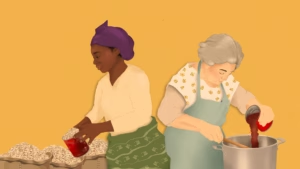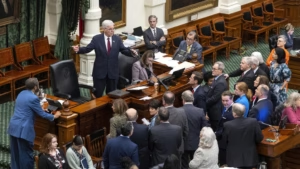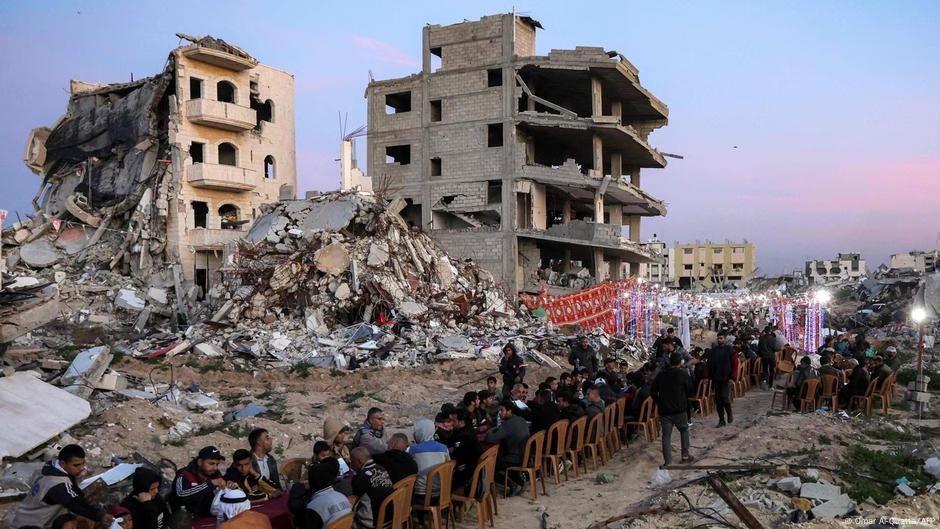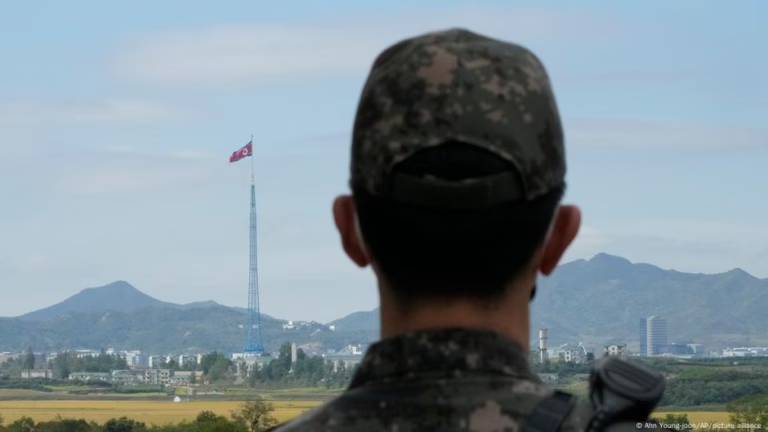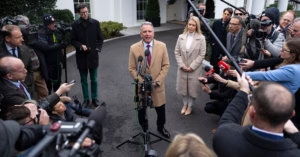<
div>
As ongoing indirect negotiations between Israel and the militant group Hamas take place in Doha, Palestinians on the ground in Gaza report that the current ceasefire is beginning to seem increasingly ineffective.
“I don’t know what to say. There’s simply no life. We have nothing that we’re not struggling with,” Walaa Mahmoud, a civil society worker, told DW over the phone from Gaza City.
According to Mahmoud, prices have surged over the past few weeks.
“Choose anything — we lack clean water, there’s no electricity, medical treatment is hard to come by, roads are in bad shape, prices are skyrocketing, transportation is unavailable, and security doesn’t exist. Everything is in a state of emergency.”
Similarly, Walid Abu Daqqa, a father of four from Gaza City whose home was completely destroyed during the conflict and is now staying with relatives, said, “We used to endure bombings and death. Now, there’s poverty, high prices, exploitation, and harsh conditions dominating our lives. My children can’t go to school, and there’s no functioning healthcare if I were to get ill. And the threat of war looms due to the absence of agreements [between Israel and Hamas].”
He also believes the situation fosters “greed and corruption” in all areas and accuses merchants of “exploiting the situation” following the closure of border crossings.
“There’s no justice, not even in the distribution of aid, and there are fees just to take money out of banks. Nothing is normal here.”
Crossings locked down as first phase of the ceasefire ends
Israel shut down its border crossings with Gaza and halted all aid supplies after the formal end of the first phase of the ceasefire agreement in early March. On Sunday, Israeli Energy Minister Eli Cohen announced he had instructed the Israeli Electric Corporation to stop selling electricity to Gaza, even though Israeli authorities cut off the electricity supply in October 2023.
In response, Hamas, which has governed the Gaza Strip for nearly two decades, accused Israel of “breaching the ceasefire deal” and “using aid as a political blackmail card” over its decision to halt aid and pressure Hamas into accepting a new framework to extend the expired first phase of the ceasefire and the hostage release deal.
The Office of Israeli Prime Minister Benjamin Netanyahu accused Hamas of profiting from stolen aid supplies. It also claims to have allowed enough aid into Gaza to last for several months, adding that it is under no obligation to continue providing aid after the first phase of the ceasefire ends.
The first 42-day phase expired in early March, and negotiations on the second phase of the agreement, which would have led to the release of the remaining hostages Hamas took during the October 7, 2023 attacks, Israeli forces’ withdrawal, and talks on ending the war, have yet to materialize.
For many in Gaza, this situation is reminiscent of when Israel cut off all supplies in the early days of the 15-month war triggered by Hamas-led attacks on communities in southern Israel.
No electricity in Gaza
However, the latest move affects only one functional power line (restored in November 2024) that supplies electricity to a desalination plant in Deir al Balah in central Gaza. Since the start of the war, Gazans have had no electricity and mainly rely on diesel-powered generators or small solar panels. The territory’s power infrastructure was largely damaged by war, and electricity supply was already limited before.
Gisha, an Israeli NGO that works to protect the movement rights of Palestinians in Gaza, reports the desalination plant supplied the area with about 18,000 cubic meters (4.8 million gallons) of water a day. After the power cut, the plant will run on generators, reducing output to around 2,500 cubic meters. The United Nations warns that the amount of drinking water available in southern Gaza will drastically decrease, affecting around 600,000 people.
Aid workers are already feeling the strain. Amjad Shawa, head of the Palestinian NGO network, explains that fuel for generators is needed and it comes from border crossings, and according to different organizations, they only have a limited amount of fuel for the coming days. Some bakeries in central and southern Gaza have stopped working due to a lack of cooking gas.
The UN Office for the Coordination of Humanitarian Affairs (OCHA) reports that “fuel for back-up generators at water and health facilities is running low, cooking fuel prices are rising and distribution of flour, fresh produce, and shelter materials has been disrupted.”
OCHA also stated that aid agencies couldn’t access the cargo that entered the Kerem Shalom crossing before it was closed 10 days ago.
<
div class=”vjs-wrapper embed big”>
Israel cuts electricity to Gaza, disrupting water supply
International criticism has no impact on Israeli actions
Israel has faced international criticism for cutting supplies.
“Humanitarian aid in Gaza is a lifeline for over 2 million Palestinians who have endured unimaginable conditions for many months. A sustained supply of aid is indispensable to their survival,” Muhannad Hadi, the UN’s humanitarian coordinator, said in a statement on Monday.
“International humanitarian law is clear: civilians’ essential needs must be met, including through the unimpeded entry and distribution of humanitarian assistance.”
The allegation of starving civilians as a method of warfare is central to South Africa’s case at the International Court of Justice (ICJ), accusing Israel of genocide, which Israel denies. It is also part of the <a class=”internal-link” href=”https://www.dw.com/en/ljq
Source: https://www.dw.com/en/gaza-everything-in-crisis-as-israel-hamas-talks-continue/a-71902871?maca=en-rss-en-all-1573-rdf
